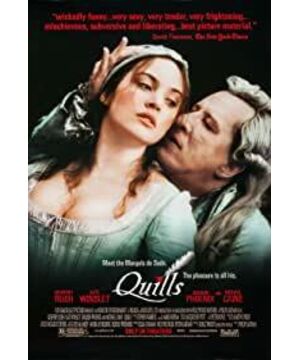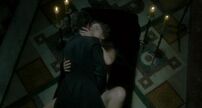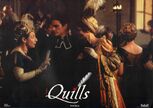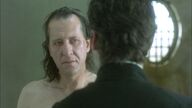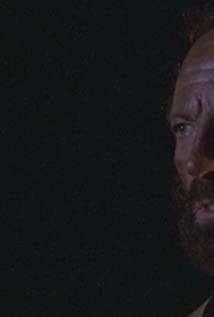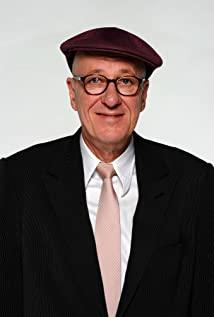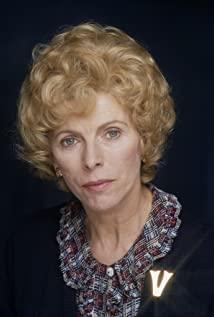(I watched the premiere, not all film workers were present. There were many different types of audiences in the crowd, including big class friends, a pair of lovers or couples, etc., very popular. Ended At that time, I heard someone say: "It's so boring. Fortunately, I didn't pay to watch it!" I thought "It won't be that way...", people from different backgrounds can have so much comment on the same movie. This sentence is really a bit enlightening for other movie viewers or film critics.)
Speaking of the movie, this is an adaptation of real people and real things. Naturally, the sense of reality will not be weak, and the viewers should be more engaged; but what about this movie The topics involved are sensitive issues such as sex, love, religion, and morality. Therefore, the audience may feel uncomfortable when watching it; in fact, at the same time as the film is being shown, there are ideological debates under the screen.
At the beginning of the film, obvious and direct methods have been used to show the moral values of the society at that time. After a female groan, Voice Over shadowed a woman's head and shoulders. During the period, the outside voice explained a story about how the heroine had a ridiculous sex life and found a man who shared her hobbies. Speaking of this, it is easy to think that the woman under the camera is the heroine; and having fun with the obese man wearing a black mask who stretches out his hand from behind. Then the woman shed tears. When the camera turned, it turned out to be a French guillotine under low-angle photography. The blade was still stained with blood from death row prisoners, and a strong sense of pressure was immediately permeated. The two of them suddenly became the relationship between the death row and the executioner, and they weren't the companions of any pleasure-seeking. A very strong message was quickly displayed, suddenly jumping from "cause" to "effect". The camera movement in this arrow simply "states" the moral standards of the society at that time.
At the beginning, it seemed to define what sin is and what society cannot tolerate. This laid the groundwork for subsequent plot changes. It makes all subsequent mentions of moral plots more profound, because this is the first argument, and then refute one by one with the opposite argument; the answer to the question of what is moral becomes gradually vague and enters a gray area. This can strengthen the viewer's interest in following and give people room to think.
The protagonist was sentenced to an isolated lunatic asylum, but what kind of mental illness did he get? Is it because he loves to write novel topics that others have never written or dared to write, or is his speech out of place and his mouthful of topics that others have never talked about? He said that he was just taking notes, recording the other side of human nature, the most hidden side of life. He temporarily changed to "Crime of Love" in the theater without permission. It was humorous and humorous. It was a ridiculous mockery of the absurdity of a doctor in sheep's clothing, and a deeper satire that the entire social system actually accommodates this kind of religion. And money is the shelter of the beasts.
The film tells the story of a generation of pornographic writer Saudi Arabia in the 19th century in an extremely conservative era. Saudi Arabia added the elements of sex and love to literary works, and even his words and deeds would not give in. When he thought of it, he said, ignoring religious taboos, showing the literati's crazy qualities. His so-called sin is due to his enthusiasm for creating sex-based literary works, underground printing, and crazy hearts. His works arouse people's own physical or psychological needs-sex. That curiosity and fantasies about sex (all that cannot be tolerated under religion) are the other side hidden in human nature. For example, the current education sector is committed to improving sex education. The reason is to hope that young people will have a correct attitude towards sex, so that they will not develop crooked thoughts because of their unguided curiosity, and use improper means to meet their needs; reduce crimes and stabilize society. Since Saudi Arabia wrote such works in the conservative era at the time, it was like involving sex education earlier; from a religious point of view, it was indeed apostasy. But in the eyes of the people at that time, it was a good medicine to relieve the curiosity, fantasy and desire for sex, so underground printing was naturally unavoidable.
Young men and women are fascinated by his works. Among them, the role played by Qi Wensley is even more typical; I don't know how to deal with the unstoppable curiosity and desire, so I have to peek at the banned books and help his works to be published. The perplexed emotion flows between the morality and immorality at the time; between the male protagonist Saudi Arabia and the other male actor Father Abby; it is like the opposition between the devil and the angel. However, the devil is not the real devil, but within the angel is the desire and nature of the mortal, and what is suppressed can be another kind of demon. Both can be innocent, and each has nothing to do with each other. However, their names are "devil" and "angel", and they can't escape the fateful arrangement.
When a literati's thoughts are surging, it is only natural to write works. Why creation sets a scope for society and religion, and what goes beyond it is transgression and crime. A literati confiscated all writing tools, or objects that could replace paper and pen, and finally his tongue was cut off. How cruel, who did these things, and what are they talking about for granted? The irony is that they distribute those posthumous works to make money. The scene described the images of those with vested interests more deeply, and it also soothed the audience's emotions. Because the scene where the male protagonist swallows the cross and commits suicide is a great accusation against the perpetrator, the entire society and religion, and is one of the climax of the film. What exactly has religious doctrine become under the spread of human beings, and how much has it been distorted? Or what do you misunderstand religion? How do humans use the power of religion to achieve their own selfish desires.
Father Abby is one of the tragic characters in the movie. He is a manipulative chess piece, in a gray area, unable to defeat the thoughts of either side, and in a dilemma. Because his own religious ideology and morality have been deeply rooted, he is in pain and intolerable when he is contending with the later suppressed human nature.
View more about Quills reviews


